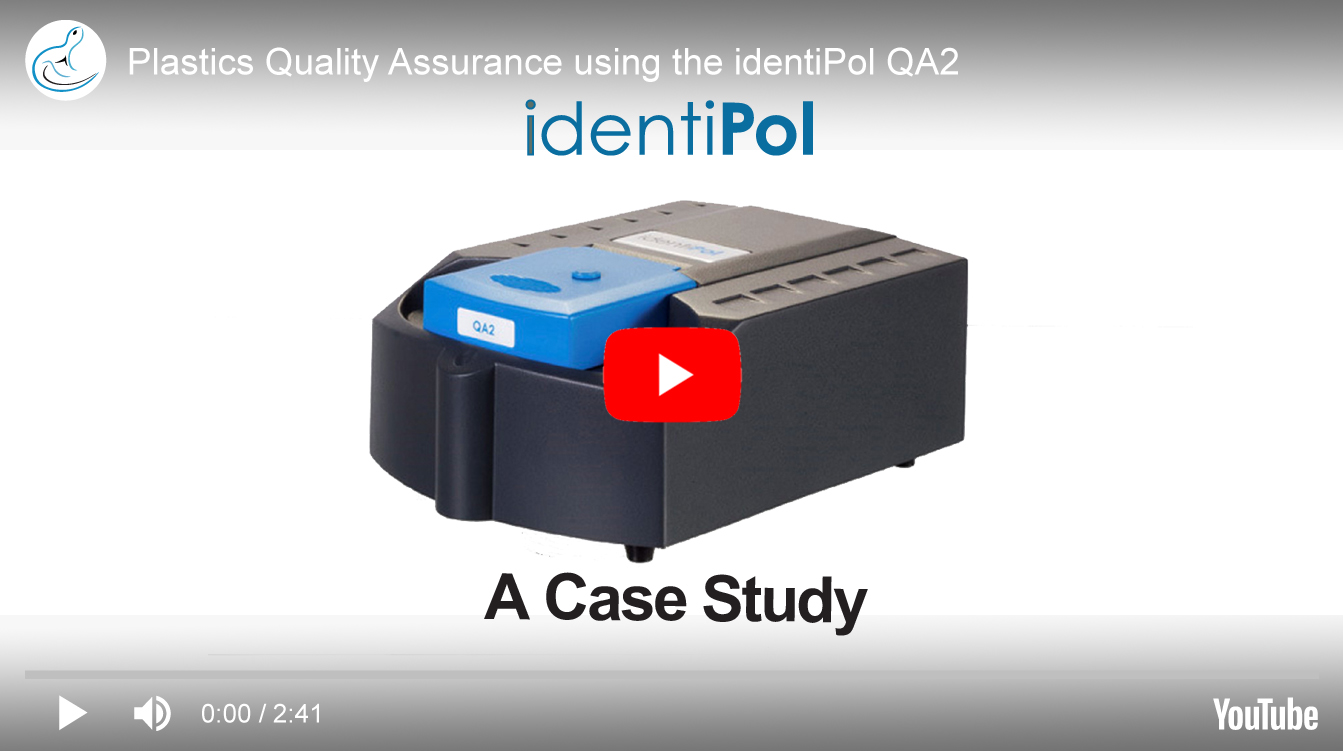영국 Lacerta Technology사의 identiPol QA2는 고분자 제조 및 가공, 재가공 중에 성형하고자 하는 플라스틱의 품질(quality)과 식별(identification) 분석이 가능하도록 설계된 열분석기로써, 유리전이온도(Glass Transition Tg, °C)와 용융점(Melting Point Tm, °C)을 측정하는 DSC 겸, 동시에 Tangent Delta, Stiffness (N/m), Molding displacement를 측정하는 DMA로 활용할 수 있습니다. 본 기기는 플라스틱 제품 성형을 위해 입고되는 플라스틱의 빠른 정성 분석 뿐만 아니라 특정한 플라스틱의 가용 여부를 확인할 수 있도록 특별히 고안되었습니다. 즉, 기준 재료와 새로운 재료의 자동화된 비교가 가능합니다.
identiPol QA2는 열가소성 수지의 품질을 식별하고 평가할 수있는 간단한 도구를 제공하도록 설계되었습니다. 사용이 간편하고 성능이 향상된 컴팩트하고 포터블한 2세대 시스템으로써, 시험 조건을 자체적으로 진단하고 최적화하여 빠르고 정확하게 시험할 수 있는 모델입니다.
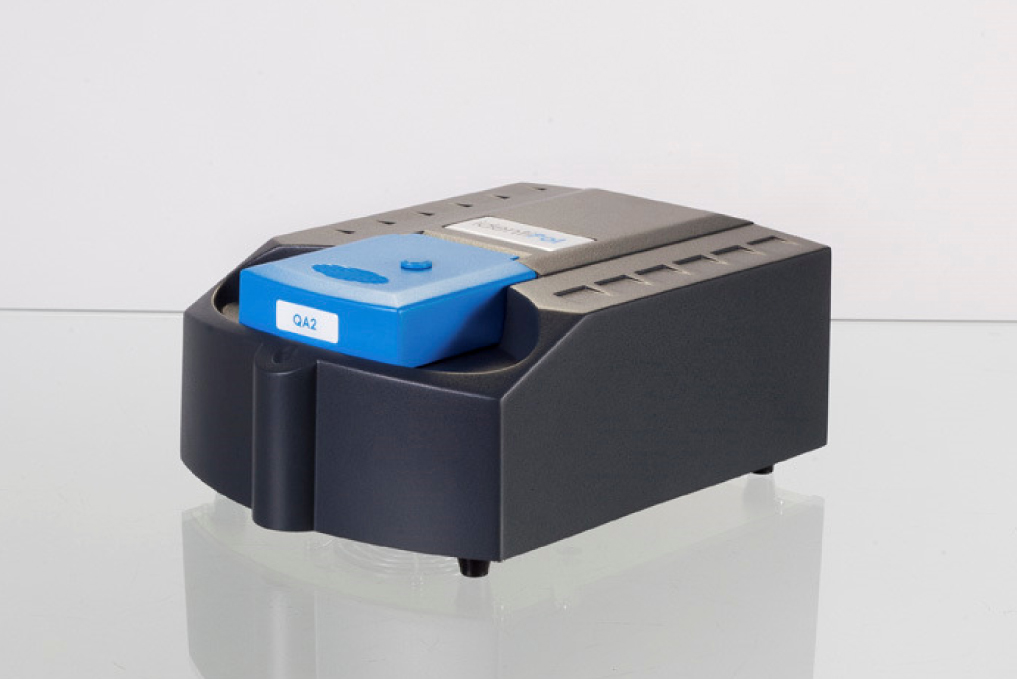
identiPol은 플라스틱의 품질을 식별하고 평가하는 품질 보증 툴입니다. 본 시스템은 입고되는 재료를 빠르게 평가하여 생산에 사용해도 될지 적합한 여부를 제공하는 기기입니다. 또한 이미 제조된 부품을 확인하는 데도 사용할 수 있습니다.
적합성 평가는 재료의 새로운 batch를 기존의 reference set와 자동으로 비교함으로써 달성됩니다. identiPol QA2는 원료의 식별 (identification)과 확인 (confirmation), 비교 (comparison), MFi 식별 (추가 소프트웨어 옵션)를 통해 입고되는 원료와 출하되는 제품을 완벽하게 분석합니다.
QA2는 테스트 조건을 최적화하는 자동의 지능형 시스템이므로 operator가 테스트를 수행하기 전에 공급자 정보, 재료 및 batch 정보를 소프트웨어에 입력하기만 하면 됩니다. 내장된 진단 기능을 통해 샘플이 항상 최적의 조건에서 측정되고 있으므로, 시험 중에 모니터링할 필요가 없습니다. 이러한 간단한 자동화로 인해, 경험이 없는 operator도 쉽게 측정하고 이에 대한 테스트 결과를 얻을 수 있습니다. 총 테스트 시간은 단 15분에 불과합니다. 더불어, 샘플 전처리와 몰딩이 함께 수행됩니다.
과립, 플레이크, 분말 또는 완성된 몰딩에서 채취된 일부 조각까지 어떤 플라스틱이라도 분석이 가능합니다.
There are three ways in which the QA2 system can be used?
Identification
기본 열가소성 플라스틱 라이브러리로 부터 플라스틱 재료의 유형을 식별합니다. 이 모드를 사용하면 재료를 LDPE, HDPE, PP, PA6 PA66 등과 같은 고분자를 간단히 식별할 수 있습니다. 펠릿, 입자상 또는 분말 형태의 고분자 샘플은 QA2 장치 내에서 몰딩, 측정, 식별되며, 식별과정을 통과한 플라스틱은 목표하는 일관된 생산이 가능하도록 해줍니다.
Confirmation
샘플이 알려진 기준 재료 (reference)와 충분히 유사한 지 확인하여 이에 대한 확신을 가지고 플라스틱 생산 라인에서 사용할 수 있으며 가공된 제품의 지속적인 품질을 보증합니다. 바이어를 위한 상세한 적합성 인증서(certificate of conformanc)가 소프트웨어로 부터 생성됩니다.
Comparison
두가지 등급의 재료가 동등한 지 비교하고 얼마나 유사한 지 비교할 수 있습니다. 비교 모드(Comparison mode)는 호모 폴리머(homopolymer)를 코 폴리머(copolymer)와 비교하고 다른 제조업체 또는 공급 업체의 원료를 비교하는 데 사용할 수 있습니다.
Running a test
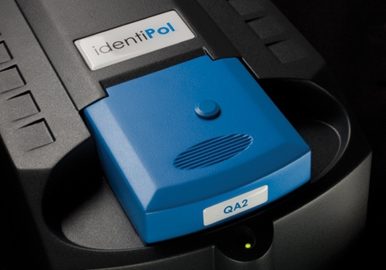
Test samples are first moulded within the identiPol to produce a consistent sample for measurement. This is done by placing the patented sample holder into the moulding station, on the left hand side, within the machine. This produces a highly reproducible sample. The sample, typically a granule, is then placed on the sample holder and the lid is closed. The identiPol then automatically moulds the sample by rapid heating at 100⁰C/min. Once moulded into the sample holder the operator transfers the sample to the testing side (right hand side of the testing station) where it is reheated to measure the thermo-mechanical fingerprint of the material. The sample is subjected to a sinusoidal force via a driveshaft incorporating a temperature sensor at its tip. These signals are used to measure the stiffness, loss modulus and temperature difference (delta T) for the sample during the test. These parameters constitute the materials thermo-mechanical fingerprint that will be familiar to the thermal analyst, namely; Stiffness, S’, Tan Delta and Delta T.
The first two parameters come from a dynamic mechanical measurement made using the applied force and displacement sensor within the machine. The Delta T is the temperature difference between the sample and the sensor mounted in the heater block assembly. A number of transition temperatures are also automatically recorded within the system software – e.g. Glass Transition Temperature, Melting Point Temperature and End Point Temperature and are available as a comparative table for all batches of material. They are also matched to a built-in-library of known thermoplastic materials - enabling material identification.
During analysis a thermo-mechanical fingerprint is taken from the tan delta data as a function of temperature and this is stored in a database against the test number. A reference set of known good quality material (ideally from at least three batches) is created. A new batch of material can then be compared against this reference by use of the Quality Index Score (QIS™). 7-10 is the normal acceptance range, but if the score is lower, its specification is probably different and should be investigated.
The QIS™ value is a unique approach developed by Lacerta Technology and The University of Bristol to assess the similarities between test results on different samples. The QIS™ value simply provides an objective assessment and removes operator error in assessing if the most recent test on a sample of material just delivered is comparable and equivalent to earlier deliveries of batches of the same material. The use of the QIS™ value provides a simple, no-quibble, “Go/No Go” as to whether the material is suitable to use on the production line.
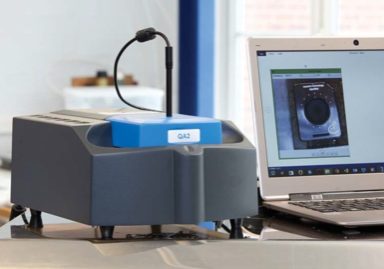
What can the identiPol do for you?

Save time
• 생산에 들어가는 그릇된 재료와 그로 인한 문제 방지
• 재료 품질 보증과 관련하여 공장에서 신속하게 "Go / No Go"를 결정
• 생산이 최대 효율로 가동되는지 확인

Save money
• 낭비 리스크 감소
• 제품의 품질을 유지하면서 저렴한 공급 업체로 변경
• 잠재적으로 보험료 감소

Secure your reputation
• 불량품이 고객에게 전달되는 것을 사전에 방지
• 고객에게 추적 가능한 재료 적합성(traceable material conformance) 제공
• 생산 제품의 품질에 대한 컴플레인 디펜스
Specifications
|
Sample size |
20-30mg (one or two plastic granules, plastic film, or a piece from a moulded part) |
|---|---|
| Temperature range | Ambient to 350°C |
| Heating rate | 10 -100°C/min |
| Automatic output | Glass Transition Tg (°C) |
| Melting Point Tm (°C) | |
| End Point (°C) | |
| Identification: | Polymer Type |
| Confirmation: | QIS value of similarity |
| Comparison: | QIS value of similarity |
| Additional output | Complex thermo-mechanical property data: |
| - Tan delta | |
| - Stiffness (N/m) | |
| - Delta T (ΔT, °C) | |
| - Moulding displacement (mm) | |
| Printed outputs | Batch summary report |
| QIS test results report | |
| Sample identification | |
| Certificate of confirmation | |
| Optional accessories | Melt Flow Indication (MFi) |
| Sample viewing camera system |
The identiPol in action at one of Europe’s largest pipe manufacturers: Polypipe Civils
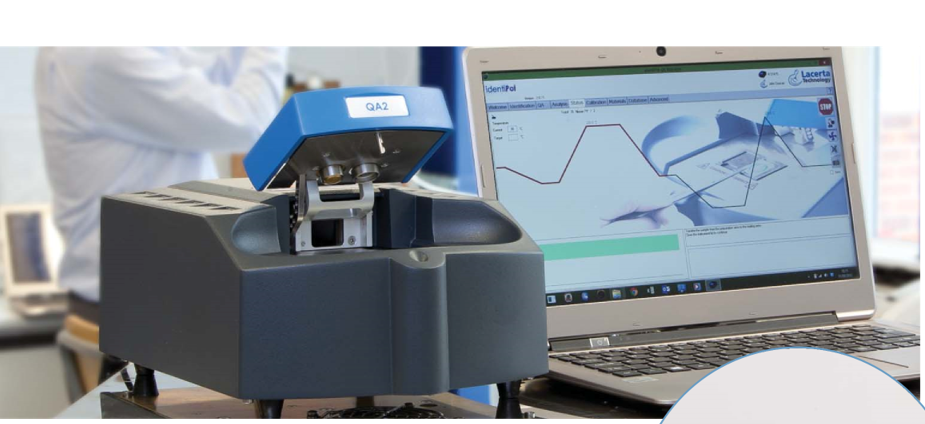
The identiPol is a quality assurance tool that identifies and assesses the quality of thermoplastics. The system has been specifically designed to provide a quick assessment of incoming material and its suitability for use in production. It can also be used to check manufactured parts.
Suitability assessment is achieved by an automated comparison of new batches of material that are compared against known good batches (stored as reference sets) that have been previously tested. This identification, confirmation and comparison of material, together with the MFi value identification (additional software option) allows the identiPol QA2 to offer a complete analysis of incoming and outgoing material.
The QA2 offers an intelligent system that self-optimises test conditions, leaving an operator with only having to enter supplier, material and batch information into the software, before performing a test. Built in diagnostics ensures that samples are always run under optimum conditions and requires no monitoring while the test runs. With this simplicity and automation, running a test and obtaining test results can be performed by inexperienced operators and the total test time is just 15 minutes. This includes sample preparation as well as moulding.
Anything from granulate, flake, powder or pieces cut from finished mouldings can be analysed.
